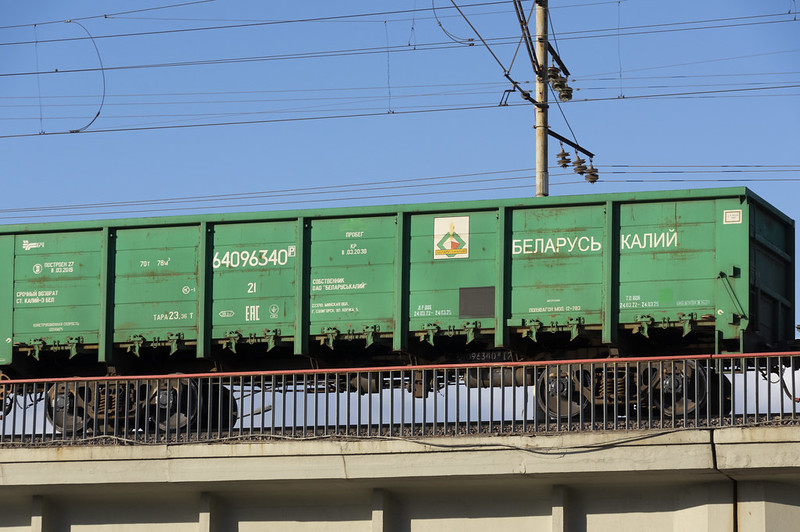‘Belarusian schemes’ behind possible sanction circumvention on Lithuanian rail

Investigative journalists in Lithuania and Belarus claim to have exposed a series of sanction circumventions by Belarus concerning the transport of fertilisers by rail. The Lithuanian transport minister Marius Skuodis commented that broken sanction rules are a product of “Belarusian schemes […] in which Lithuanian companies are also involved”.
Fertilisers used to be the bulk of rail cargo transport between Lithuania and Belarus. In fact, they constituted a substantial part of LTG Cargo’s yearly revenues. Lithuanian Railways stopped transporting Belarusian fertilisers before the western sanctions hit the country in 2022.
Specifically, LTG decided to stop the transit of fertilisers in 2021, when the EU sanctioned the Belarusian economy due to non-transparency and corruption concerns. Since then, Lithuania has imposed a regime of individual assessment for requests related to the transport of fertilisers by Belarusian companies. In practice, each transport request is assessed separately to determine whether it’s valid according to sanction rules.
After the EU sanctions on Russia and Belarus stemming from the invasion of Ukraine, more companies were added to this sanction list. However, some were still excluded. According to the investigative report, that is the loophole that the Belarusian regime uses to ‘disguise’ the origin company of fertilisers and import them to Lithuania by rail using a different shipper name.
The report mentions a case study of the Belarusian company Grodno Azot, which has allegedly been transporting urea fertilisers on Lithuanian rails since 2021 when the company was sanctioned. Grodno Azot has been dispatching its cargo using names of other fertiliser companies from Belarus, which are not imposed in any sanction regime.
‘Endless Belarusian schemes’
Addressing the Lithuanian media, transport minister Marius Skuiodis spoke of a series of exposed Belarussian schemes attempting to circumvent sanctions. He also said that he expects even more such schemes to be deployed in the future. In his words, “the Belarussian KGB is working day and night to generate revenue by circumventing sanctions”.
Moreover, Skuodis added that Belarusian companies are not the only ones involved in this situation. He was quoted by Lithuanian media saying that “ both foreign and, unfortunately, Lithuanian companies” use shady methods.
Not just smuggling
It is interesting to note that a few days ago, Lithuania closed one of the railway border crossings with Belarus until further notice due to continuous smuggling attempts. The latest attempt that the Lithuanian Customs Office prevented concerned the transport of bootleg cigarettes.
The Lithuanian customs had already installed x-ray scanners in most shared border crossings with Belarus to ensure that imported cargo complied to sanction rules. This is the primary tool of Lithuanian authorities to track smuggled products, which is why the Stasylos-Byenyakoni border point is closed until such equipment is installed there too. Nevertheless, despite the scanners, it seems that more ‘creative’ ways to circumvent sanctions are already in practice and orchestrated on a large scale.
Follow RailFreight.com on Google News and get the latest industry updates.
You just read one of our premium articles free of charge
Want full access? Take advantage of our exclusive offer




